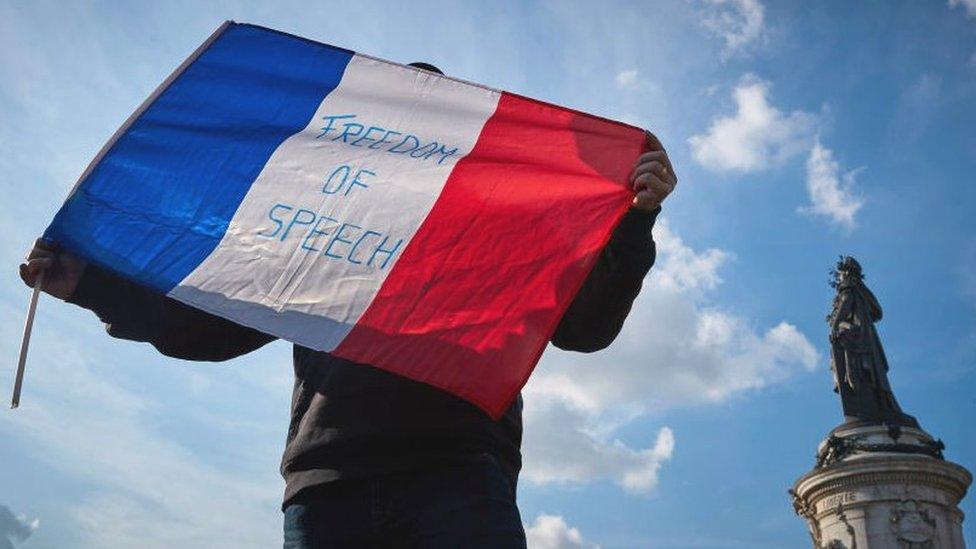France attack: What we know about the stabbings in Nice
- Published
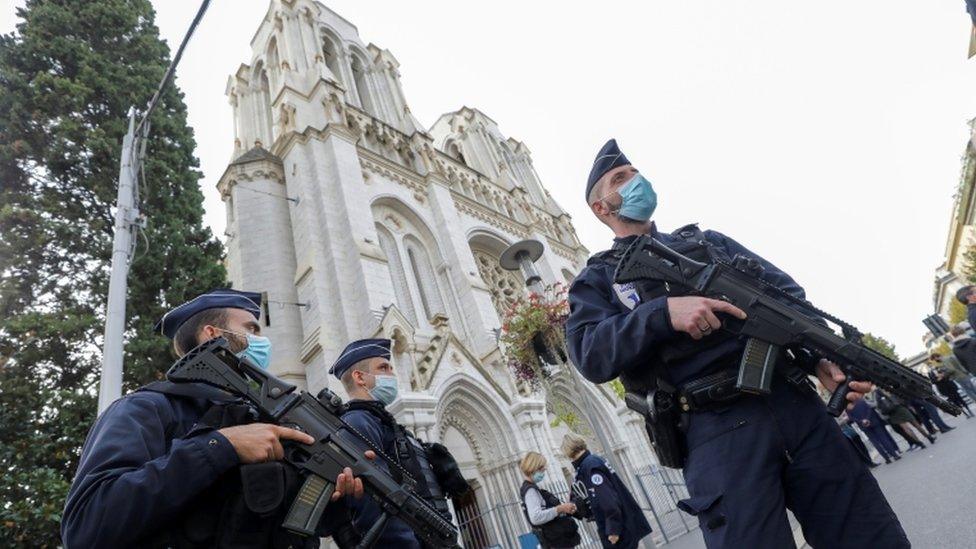
France has been plunged into mourning after three people were killed in a knife attack at a church in the southern French city of Nice.
The knifeman launched Thursday's attack inside the Notre-Dame basilica, leaving a scene police described as a "vision of horror".
World leaders have expressed solidarity with France in the wake of what President Emmanuel Macron called an "Islamist terrorist attack".
It is the second suspected Islamist extremist attack on French soil in less than two weeks.
"It is France that is under attack," Mr Macron said, issuing a defiant message to "not give in to any terror".
As France grieved, tributes have been paid to the three victims - a church staff member and two female worshippers.
What happened at the church?
France's chief anti-terrorism prosecutor, Jean-François Ricard, said in a news conference that surveillance footage showed the suspect arriving in Nice via the city's railway station on Thursday morning, where he changed his clothes.
The suspect then walked the 400m (1,312ft) to the Notre-Dame basilica, which he entered at 08:29 local time (07:29 GMT).
There, he attacked and "virtually beheaded" an elderly woman, while a church worker received fatal wounds to the throat.
A second woman managed to escape the church and reach a nearby bar, but later died of her injuries.
Mr Ricard said the victims were "targeted for the sole reason that they were present in the church at the time".
Eyewitness: "We heard many gunshots"
When police arrived at the scene, the suspect approached in a "threatening manner" and repeatedly said "Allahu Akbar (God is greatest)", according to Mr Ricard.
Officers first tasered the man, before firing live bullets. He was then taken to hospital.
In addition to the blade used in the attack, police found two other knives in a bag belonging to the suspect. Two phones and a copy of the Koran were also recovered.
Who were the victims?
The victims, a man and two women, were inside the basilica before the first Mass of the day.
One of them, named by French media as 55-year-old Vincent Loquès, was a devout Catholic who reportedly worked at the basilica for more than 10 years. He was a sexton, or lay member of staff, responsible for maintenance and welcoming visitors to the church.
Mr Loquès was opening the church on Thursday morning, when the attacker slit his throat, police say.
A father of two daughters, Mr Loquès was known and loved by many of the church's regulars.
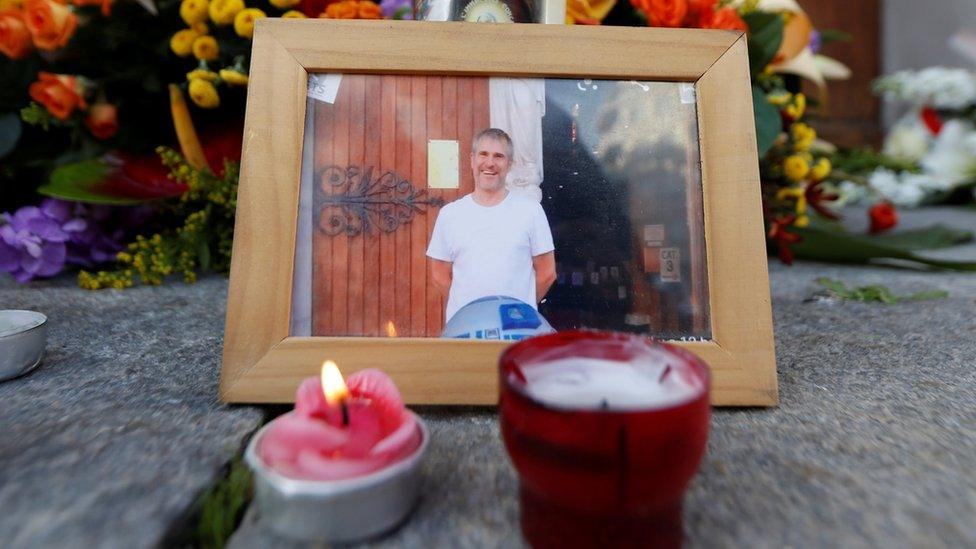
Vincent Loquès had worked at the church for more than 10 years
Speaking to French media, parishioners described Mr Loquès as a man who "always smiled" and dedicated his life "to serving the church".
"He fed the refugees, he had a good heart," one worshipper who came to pray for Mr Loquès told broadcaster France Info.
A second victim has been named by the Brazilian foreign ministry as Simone Barreto Silva, a 44-year-old mother of three who was a caregiver for the elderly. Born in Salvador on Brazil's north-eastern coast, Ms Silva had lived in France for 30 years.
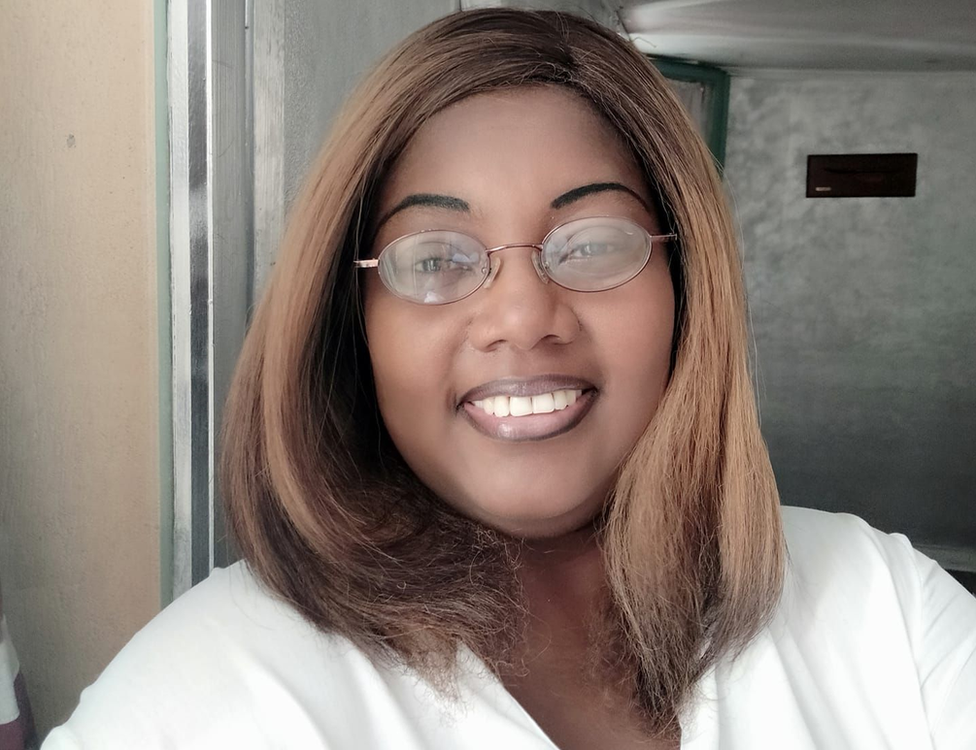
Simone Barreto had lived in France for 30 years
Severely injured, she managed to flee the attacker and took refuge in a restaurant near the church.
"Tell my children I love them," she told paramedics, according to French cable channel BFM TV. She died a short time later.
Brazil's foreign ministry confirmed one citizen was among the victims of Thursday's "atrocious attack". In a statement, President Jair Bolsonaro offered his "deepest condolences to the family".
The third victim, a woman aged about 60, has not yet been named. She was found "almost beheaded" near the holy water font, a police source told Le Figaro.


Who was the attacker?
Police have not yet confirmed the suspect's name, although French and Italian media have named him as Brahim Aioussaoi.
According to Mr Ricard, the suspect is a Tunisian national born in 1999. He is said to have entered Europe on 20 September, travelling by boat to the Italian island of Lampedusa, before later arriving in France.
The suspect was found with a document issued by the Italian Red Cross, although it is not clear how he was able to leave Lampedusa or reach France.
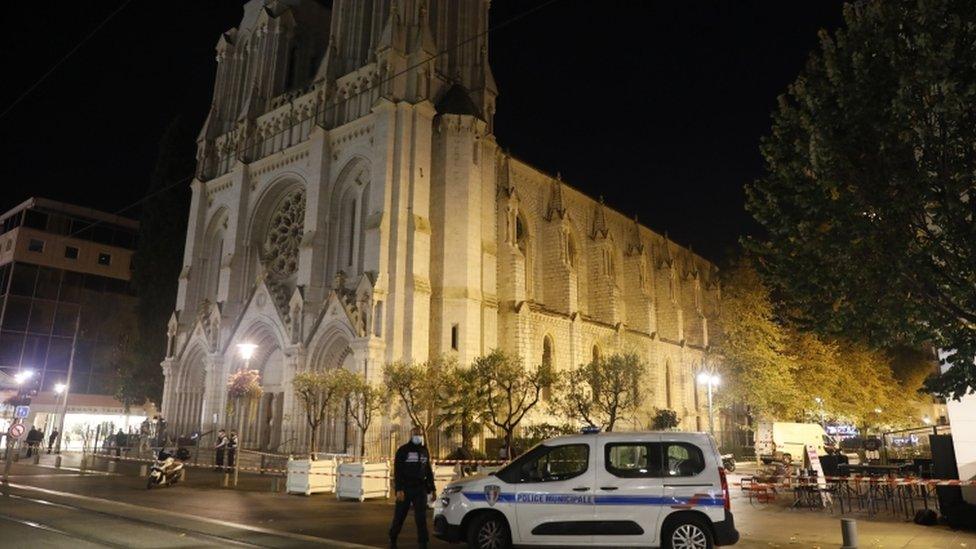
The attacker was shot by police at the scene and is in hospital
Mr Ricard said the man was not known to French security services.
Tunisian authorities have also opened an investigation, but a senior judiciary official said the suspect had not been listed as a terrorist in the country.
On Friday, French police said they had arrested a 47-year-old man in connection with the attack. He is suspected of having been in contact with the knifeman the day before.
What reaction has there been?
The attack has shocked the world, spurring messages of support and condolences for France during a difficult period for the country.
Pope Francis condemned the attack "that sowed death in a place of prayer".
"I pray for the victims, for their families and for the beloved French people, that they may respond to evil with good," he said.
US President Donald Trump said his country "stands with our oldest ally in this fight", while Australian Prime Minister Scott Morrison said he was "deeply shocked" by the stabbings.
There was also condemnation from Middle Eastern countries, which have been embroiled in a diplomatic spat with France over the use of cartoons depicting the Prophet Muhammad.
Turkey said it stood with the French people against violence and terrorism.
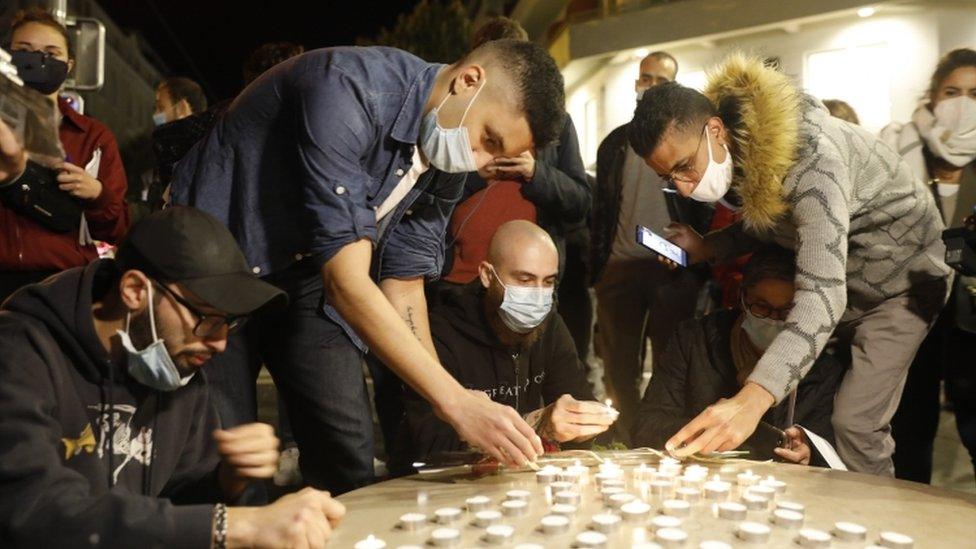
A candle-lit vigil was held outside the church on Thursday night
Outside the church in Nice, candles have been lit and flowers laid at a makeshift vigil to the victims. Those who spoke at the scene said the attack had stricken them with grief.
What is the wider picture?
Islamist violence has once again become a key issue in France in recent weeks, following the beheading of a teacher outside Paris earlier this month.
Rallies in Paris, Toulouse, Lyon and other French cities in support of Samuel Paty
Samuel Paty had shown his students controversial cartoons of the Prophet Muhammad during a lesson on free speech.
While crowds gathered across the country to mourn Mr Paty's death, the killing reopened the debate about secularism and freedom of speech in France.
President Macron pledged to crack down on radical Islam following Mr Paty's killing.
However, his response has been met with protests and calls for a boycott of French goods in a number of Muslim countries.
Two other attacks took place on Thursday: one in France and one outside the French consulate in the Saudi city of Jeddah.
- Published29 October 2020
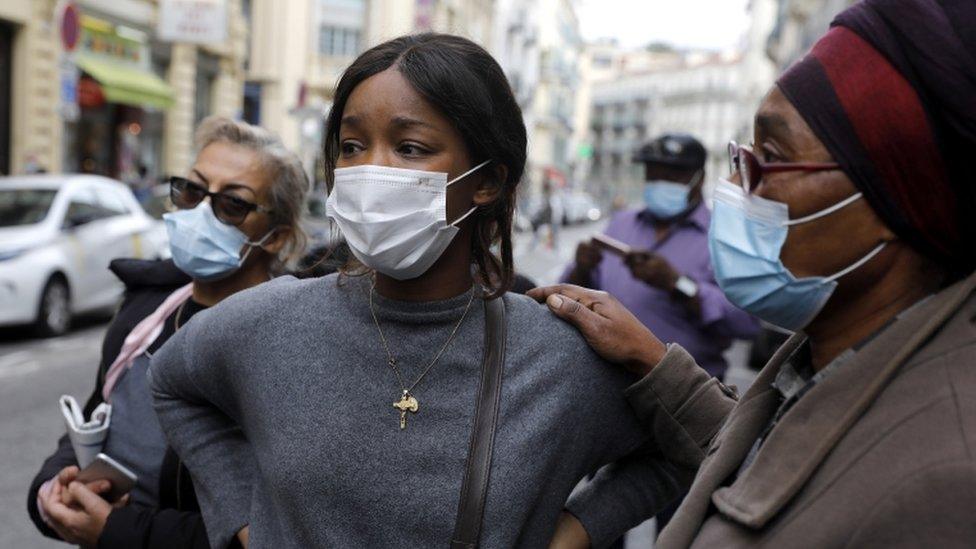
- Published29 October 2020

- Published20 October 2020
